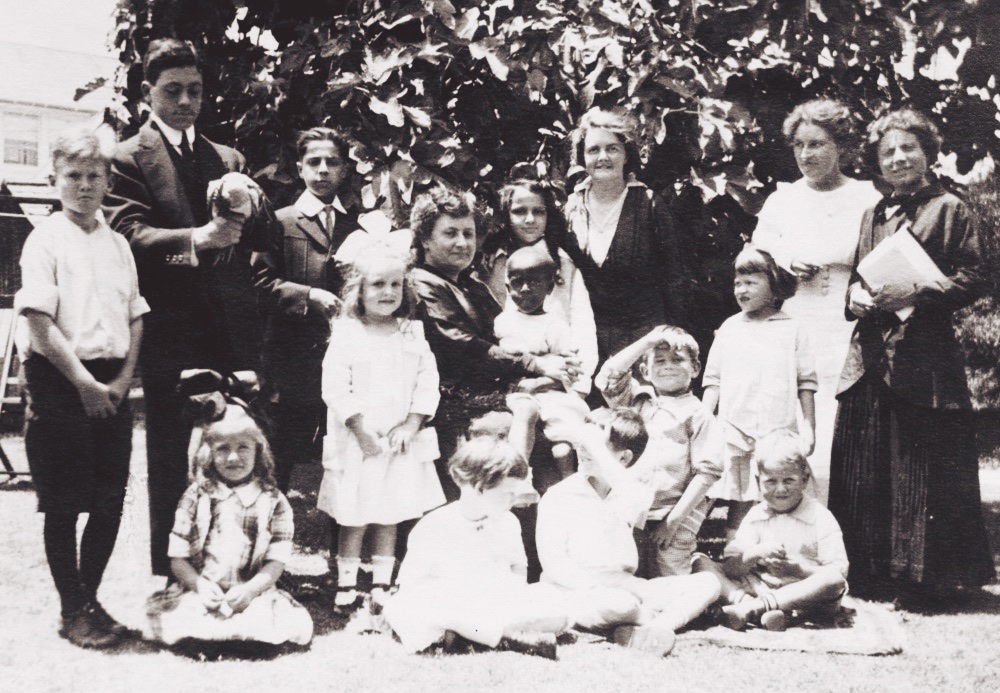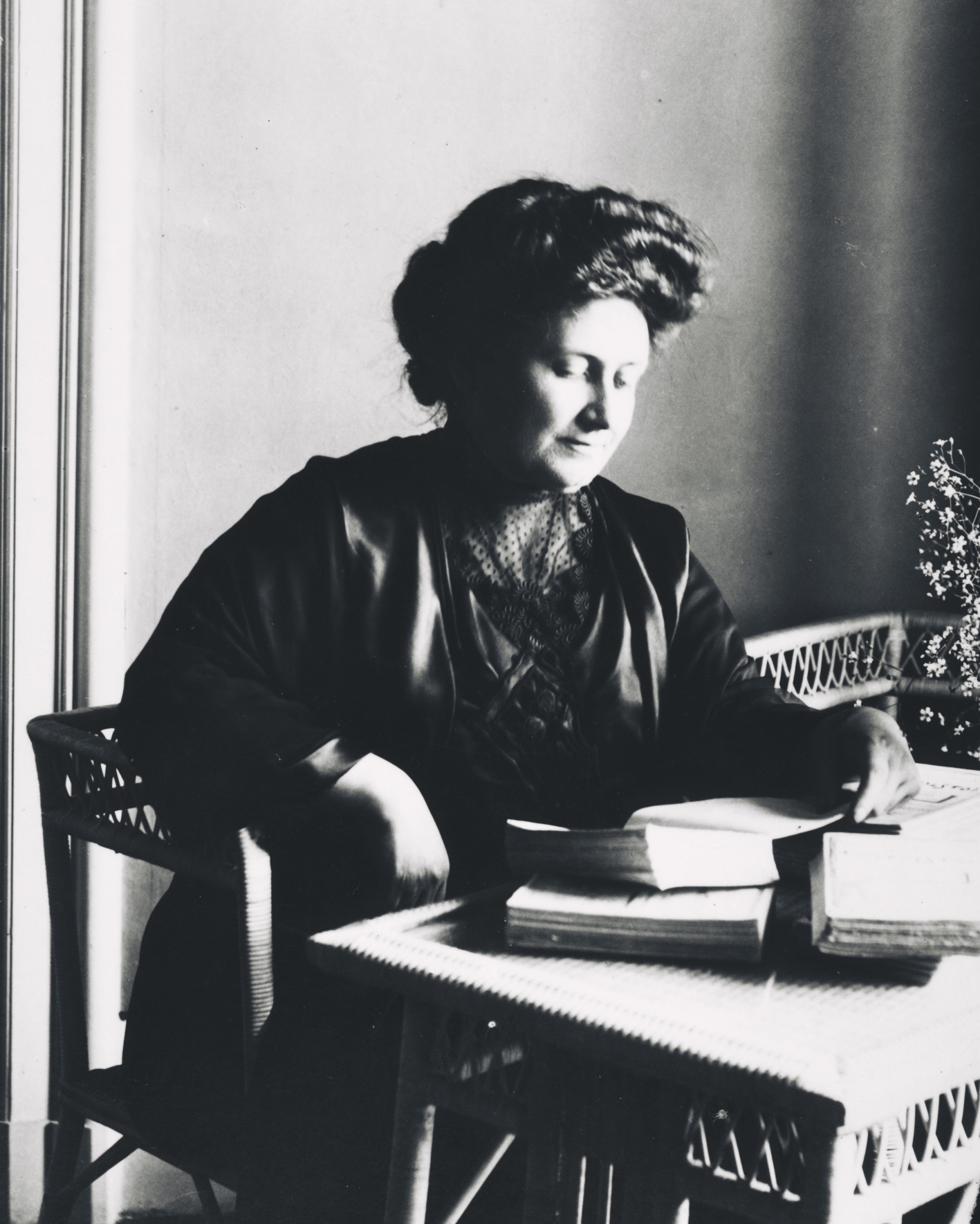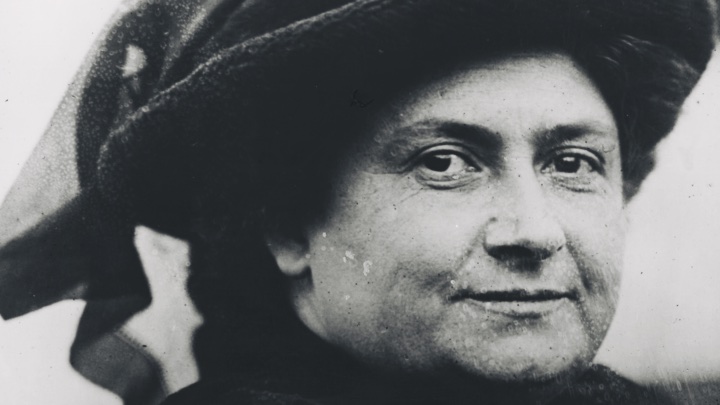Empower Through Education
Thoughts & Reflections
In a wonderfully concise, passionate letter, written from the Association Montessori Internationale Head Office, in January, 1940, Maria Montessori extols the virtues of childhood. She offers a candid reminder that, as a society, we must continue to work, to the best of our abilities, to exert our efforts towards the empowerment of children. She shares her enthusiasm with the world, which we are now overjoyed to share with you.
Maria Montessori:
There is a rather too ready tendency to consider things in an absolute way giving them only one interpretation, thus overlooking a relativity that very largely depends upon ourselves. This condemning of things as either good or bad—without leaving any space for their being in one case good and bad in another—does perhaps at first seem to have no advantages. Yet, it has the superficial advantage that it relieves us completely of responsibility. The quality of things then becomes their inherent quality and is no longer seen in relation to man and the use he makes of them.
“ It is often in their relation to the child that phenomena, otherwise appearing rather blurred and apt to be misunderstood, are seen in their true light and significance. ”
Let us, therefore, take an example—the idea of danger—as generally understood when dealing with the child. ‘Do not do this.’ ‘Do not touch that.’ ‘Do not use it. It is dangerous!’ are explanations often heard not only in the nursery but equally so with older children. And what is then considered dangerous? That a young child uses a knife? That he carries a china saucer? That he lights a match? But why should these be dangerous? Who has not seen very young children in a church carry lighted candles, or in a Montessori class or at home cut vegetables or carry very fragile and possibly valuable china? Are these then not dangerous? No, it is not dangerous; it may be dangerous. And this potentiality of a doubtlessly disagreeable quality, or let us say function, is exactly a challenge to man! It depends upon man whether something be dangerous or not. If he is ill-behaved, badly co-ordinated in his movements or unconscious and careless in his mind, almost anything is dangerous in his hands although the same things and ideas are perfectly harmless or even beneficial in many other people’s hands.
This then confers a great responsibility upon education because we see that it might be thought much easier to pronounce a sentence upon all things and classify them according to their inherent dangerousness or innocence and then eliminate from the child’s environment all that is labelled dangerous. (And this is a trend in education both most ancient and modern, although in the latter case it is often adorned and disguised by a shiny cloak of lofty principles and motives ‘to the sole benefit of the child’.) Danger has then become an almost autonomous subject, whilst man ought to be the subject whose development determines the amount of danger in his environment. Besides, we should render the child a most doubtful service by keeping him in a perfectly harmless environment which, at the same time, is devoid of all challenge to his powers of perfectioning and overcoming danger. The day will come when the home and the school, who have collaborated in thus keeping the child out of danger and reality, …will expose the then young man as a foundling. He will find himself utterly dependent because he could never acquire and conquer independence, surrounded by innumerable dangers of which he was perfectly unaware. He lacks both functional and moral balance. He is a stranger in society because everything is dangerously unknown to him, because he cannot cope with its many problems; he has never had any experience. He himself is potentially a danger to this hostile society because of his lack of experience. And then he surely seeks refuge where safety is most loudly promised. He follows those that will think, decide and act for him and thus keep him away from the dangerous possibility of having to face the consequences of having thought, decided and acted wrongly. But, also, then the moment will come—as before—when he will find himself facing a perfectly strange situation, very far removed indeed from what he might have expected.
On the other hand, we see mankind who has almost worked miracles in its efforts and success towards the elimination of dangers by learning their secrets and mastering them. We even see man using former dangers to his own benefit or at his own will. Holland, in olden times, was frequently brought to the edge of complete ruin by floods as the sea swept over these ?Low Countries? below sea level. We see then how man learned to keep the sea at bay by building dykes and artificial ramparts. We see them even battling against the sea, forcing it out and transforming large portions of the seabed into fertile land. Floods can also be artificially brought about as a means of potential defence and this formerly most ferocious enemy can be handled at man’s own will, now allowing the waters in, then forcing them out, just as is deemed fit.
There are many examples of what was once a danger which has since been conquered by man who, by developing himself and using his intelligence, has placed himself above them and even learned to use them. Water has become an important roadway. Snow and ice are often means of amusement and entertainment. Poisons are sometimes used as medicine. The dangers of mountaineering are a much sought object of sport.
Why then can we resignedly continue to suffer those dangers that depend almost solely upon man himself? We cannot hope for somebody to keep them away, as we do for our children. Why is man man’s own most bitter enemy and most terrible destroyer? No scourge, no flood, no volcanic eruption causes the havoc that man brings to man. Why do the most eminent and gifted, heroic personalities give all their thought and energy to the unravelling of natural mysteries that perhaps will never be completely controlled, whilst utterly poor and futile are the superficial efforts made to avert the outbreak of catastrophes like that which we are witnessing today? Why are labels so readily accepted, labels which have indiscriminately been attached to so many ‘effects’, declared and accepted as ‘causes’ such as ‘innate human tendencies’, ‘unavoidable issues’, ‘economically conditioned unsolvable problems’, etc.?
The greatest danger of our present times is man’s own unawareness of, or blindness to, his power over conditions that are certainly extremely and almost fatally dangerous but so largely depend upon himself and should, therefore, be more easily understood and mastered than much that has so brilliantly been conquered before.
“ Man masters almost everything but himself. He knows almost everything but himself. He avails himself of the most hidden treasures but does not use the immense riches and powers that lie within himself. ”
This points to the great and urgent task of education! No mobilisation is as complete as that which can be realised by the school. In the past, military service was limited to men of a certain age group. Now more and more people are drawn into the service of war—even women and children. But if the school takes upon itself the task of mobilising the young for the achievement of that perfect development that brings forward man as he can and is destined to be: conscious of the society he will become part of; master, not slave, of the infinite means that civilisation puts at his disposal; equally developed in his moral and social powers as in his physical and intellectual ones; aware of his task which requires the collaboration and unanimous effort of the whole of mankind—nobody will be overlooked. Nobody will be rejected; nobody exempted! The whole of mankind will be enrolled in this service, which is a service for peace. Thus, education will become a true and invincible armament for peace! All human beings will grow to be ?knights of peace? during that period in their life when what is formed can never again be shed or destroyed because this is the period of formation when the cornerstones of the human personality are definitely fixed.
If our aim is to help the development of life in all its aspects and faculties, but above all that of the moral and social faculties, if all our means are used to this aim, we shall attain the bridging of the tremendous contrast between the development of man’s material and spiritual powers.
Great truths concerning man’s real nature and mission have already become clear. Many problems have already been solved through the revelation of a child who, when given the help he needed to conquer the degree of independence corresponding to each successive phase of development, had not grown merely in exterior capacities but, above all, in inner consciousness of himself and his surroundings.
Much has yet to be accomplished but the contribution we are already able to give fills us with hope and certainty and with a deep sense of responsibility towards the world of the future which so very largely depends upon the realisation and promotion of these truths which are the secret of childhood.
– Maria Montessori
* The original text of Empower through Education can be found on the Association Montessori Internationale website, and there are a number of other excellent contributions, which we highly recommend.
Written by:
Bobby George





